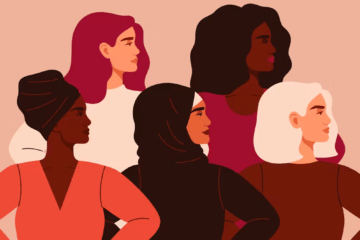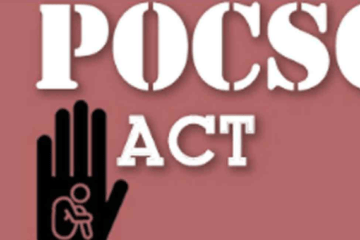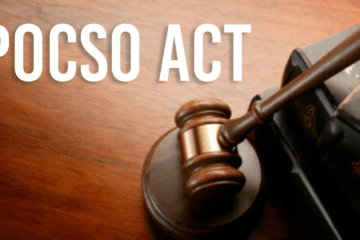
This article is written by Shyambhavi Singh of 7th semester of University Institute of Legal Studies, Panjab University, Chandigarh, an intern under Legal Vidhiya.
ABSTRACT
This article delves into the Protection of Children from Sexual Offences Act, 2012 (hereinafter referred to as POCSO Act) which was passed by the Government of India in the year 2012. The crimes in India against children are increasing every day. Such crimes have an adverse effect on the minds of children leaving them with a lifelong trauma. The present article begins with providing a brief introduction to the POCSO Act and talks about its background as to why there was a need to enact a new legislation for protection of children in India. The present article explains the salient features of POCSO Act in detail along with different provisions of this Act. At the end of the Article, landmark judgements of the POCSO Act has been explained. The readers are advised to read the full article in order to get the in-depth knowledge of the background, features and landmark judgements of the POCSO Act.
KEYWORDS
POCSO, Features of POCSO, Sexual offence, sexual harassment, sexual assault , recording of evidence, Special Court, National Commission for protection of Child Rights, State Commission for protection of Child Rights, aggravated penetrative sexual assault, penetrative sexual assault, aggravated sexual assault, child’s care and protection, gender neutral legislation.
INTRODUCTION
A child is someone who has not yet attained the age of 18 years. They are considered to be the marginalized groups of society. As per the recent 2023 statistical reports, India has one of the largest populations of children in the world -with around 444 million children[1]. The Constitution of India guarantees the right to protection of children under its Directive Principles of State Policy which provides directions to States to furnish the children care and education and work for their welfare in society until they attain the age of six years[2] . The Constitution also protects children from being abused and forced by economic necessity to enter occupations unsuited to their age or strength[3]. With each passing year, the crimes in India are increasing day by day. Not only women, but children are also not considered safe in society. In 2012, the Government of India took a major step in providing safety to children and enacted the POCSO Act to dispense protection to the children in society from sexual and, physical harassment and exploitation. The Act aims to provide for Special Courts that will effectively deal with such cases by providing a child friendly atmosphere to the child.
BACKGROUND
Before the advent of POCSO Act 2012, India had Goa Children’s Act 2003 and Rules 2004, and sections 375, 354, and 377 of the Indian Penal Code, 1860 were exercised when any offense was committed against children. India had no proper legislation of its own till 2012 to redress the cases of child harassment and assault though, the United Nations have adopted the Convention on the Rights of the Child. There was a need for new legislation to protect children from suffering and sexual abuse as the above-mentioned sections only protect the female child and not the male child from sexual exploitation. The crimes against children were also increasing and definitions like ‘modesty of women’ and ‘unnatural offenses’ were not defined which made it difficult to interpret and apply the laws in every such case. Hence, with multiple and joint efforts of activists, and various Non-governmental organizations, the POCSO Act, 2012 was enacted by the Ministry of Women and Child Development. The Act came into force on 14th November 2012. The Act defines who is a child and as per the gravity of the offence, provides punishment for the offender.
SALIENT FEATURES OF THE POCSO ACT –
1)Provides protection to children from Sexual Assault, harassment and pornography: The POCSO Act defines and punishes the offender for committing exploitation and assault on child. They are as follows:
| OFFENCE | PUNISHMENT |
| Penetrative sexual assault | Minimum punishment 10years Offence against a child below 16years – 20 years imprisonment which may extend to life imprisonment and fine |
| Aggravated penetrative sexual assault | Minimum 20 years imprisonment which may extend to life imprisonment and fine or death |
| Sexual assault | Minimum 3years of imprisonment Maximum 5 years and, fine |
| Aggravated sexual assault | Minimum 5years of imprisonment Maximum 7 years and, fine |
| Sexual harassment | Imprisonment up to 3years and fine |
2) Special Courts are established to effectively deal with cases under the POCSO Act: The POCSO Act provides for the establishment of a Special Court under Chapter VII. Section 28 of the Act provides that in every district, the State Government shall in consultation with the Chief Justice of the High Court establish a Court of Session as a Special Court to deal with offenses related to sexual harassment and pornography committed on a child.
The Special Court under Section 33 has the power to take cognizance on receiving a complaint or on Police report without the accused being committed to trial. It is also the duty of the Special Court to make sure that :
- There is no disclosure of child’s identity in media and which shall include the child’s school, relatives, family or neighborhood.
- No such questions to be asked which are aggressively attacking the child’s character.
- To ensure that a friendly atmosphere is provided to the child.
- Allows the child to take breaks during the trial.
- The child’s dignity is maintained
- The accused shall not be present at the time of recording evidence of the child.
3) Right to privacy: The POCSO Act provides for non-disclosure of a child’s identity in the media or public. As per Section 23 of the Act, no remarks or reports on any child shall be allowed from any form of media without having bona fide or complete information. Also, the media is under the obligation not to disclose the identity of the child which shall include his family members, neighborhood, address, etc. If the media contravenes this provision, it shall be punished for a term not less than six months and may extend to one year. It may also be liable to fine or both. Section 24 of the Act puts a duty on the Police officers not to disclose the child’s identity while recording the statements of the child.
4) Importance to children’s interests and well-being: The POCSO Act aimed to effectively address the crimes against children and provide a safe and protective atmosphere for the children. A woman police officer, not below the sub-inspector rank shall, as per Section 24 of the POCSO Act, record the statements of the child at his residence or any other place that is convenient to the child. The Act also provides for conducting the medical examination of the child whether a complaint has been filed against the accused yet or not.
5) Investigation and completion of trial: Under the POCSO Act, it is the responsibility of the Special Courts to record the evidence of child within 30days from the date of taking cognizance and the trial shall be completed within one year period from the date of taking cognizance. The proceedings shall he conducted in presence of child’s parents or in camera to ensure a child friendly environment for the child. The assistance of educators and translators can be taken if required or necessary for the trial. If the offender is a child, he shall be treated and tried as per the Juvenile Justice Act, 2015.
6) Punishment for using child for pornography and sexual gratification: When a child is used by offender for fulfilling his unnatural gratification and for pornographic purposes, he shall be imprisoned for 5years but if he commits the same offence subsequently, he shall be punished up to 7 years and fine. If a person stores, possess, share, transmit or distribute pornographic material involving children and the purpose of storing such materials is to use them for commercial purposes then, he shall be imprisoned for 3 years or fine or for both of them.
7) Reporting made mandatory under the POCSO Act: The Act provides that every person has a duty to report the case to Local police or Special Juvenile Police Unit when they have an apprehension that a crime has been committed against a child or is likely to be committed. Not only persons but, it is also the duty of media, hotels, hospitals, studio and clubs to report the cases. Failure to report the same, shall be punished with an imprisonment of 6months or fine. If any malicious or misleading information is given by any person, he shall also be punished for 6 months or fine but, if a child makes any false information, he/she shall not be punished for the same.
8)Gender neutral: As per Section 2(d) of the POCSO Act, 2012, a child is any person who is below eighteen years of age. A victim under the Act can be a male or female child. It is a gender-neutral legislation which provides for the welfare and safety of children irrespective of their gender.
9) Public awareness of the Act by the Government: The POCSO Act under section 43 provides for spreading the awareness regarding the Act among the general public and its provisions by the Centre and State Government. The awareness and publicity of the same shall be made at regular intervals through medium of media including television, Radio and print media. The Central and State government officers shall also be trained periodically on the matters related to implementation of provisions of Act. The power to make rules and remove irregularities in the POCSO Act shall be in hands of Centre Government. It is the duty of National Commission for protection of Child Rights and State Commission for protection of Child Rights to monitor the proper implementation of the Act
CASE LAWS :
1)Attorney General of India v Satish and Ors. (2021)[4] – also known as ‘Skin to Skin Contact Case’-
In this case, the Supreme Court had set aside the judgement passed by Bombay High Court which held that skin to skin contact is necessary to punish the offender for sexual assault under Section 8 of the POCSO Act.
Facts : The victim, who was a 12year old girl went outside her home to collect guavas. The accused persuaded the victim and took her to his own house. He pressed her breasts and tried to remove her salwar. A complaint was filed by the mother of the victim and the Special Court convicted the accused under 342, 354 and section 8 of the POCSO Act. On an Appeal by the accused, the Bombay High Court set aside the judgement passed by the Special Court and held that pressing the breasts above the clothes would not fall under the purview of word “sexual assault” and convicted them only under 354 IPC.
Court held :The Supreme Court held that the most important ingredient to constitute the offence of sexual assault under Section 7 of the Act would be the “sexual intent” and not the “skin to skin” contact with the child and any narrow interpretation of the provision which would defeat the object of the provision would not be accepted. The High Court had fallen into a grave error in holding the accused guilty only for minor offences and acquitting them from grave offences. Hence, the order passed by High Court is quashed and set aside and are convicted for the grave offences with the present appeal.
2) Babu lal v State (2023)[5]
The Delhi High Court in this case have issued a set of guidelines to shield the victims of POCSO Act. Justice Jasmeet Singh in this case, have led down that calling the victim again and again on dates of argument has an adverse effect on the minds of victim. It would be in the interest of victims that they shall not be forced to appear on court proceedings while the accused is also present, as this would be like re- living the traumatizing incident again. The guidelines are as follows :
- It is the duty of investigation officer to serve a notice of bail application to victim to provide him with a reasonable time to appear in the court.
- While enquiring the victim, the investigation officer shall
- If on the date of bail application the victim has appeared, their appearance may be dispensed with in subsequent proceedings.
- The victim shall be asked only those questions which are appropriate and not blunt while recording the submissions of victim qua bail application.
- A support person like his guardian or parents shall also be present with victim while he appear in court for bail proceedings as to provide him psychological and emotional support.
- If in writing, the victim has given a submission that his pleader or guardian will appear on his/her behalf, then the victim shall not be forced for the same.
- A copy of the order of disposing of the bail application shall be sent to the victim mandatorily.
RECENT DEVELOPMENTS :
In 2019, the Protection of Children from Sexual offences (Amendment) Act , 2019 has been passed to make necessary changes and additions in the Act. This Bill was presented in order to make the POCSO Act,2012 more effective and minimize the loopholes which were present in the Act. The following 2019 Amendment brought made the following changes :
1)The general punishment for the penetrate sexual assault has been increased to 10years which was earlier 7 years. It has also added that if the offender commits penetrative sexual assault against a child who is below the age of 16 years, he shall be imprisoned for the period of 20 years.
2)Two new grounds have been added under the section 6 of the act which defines aggravated penetrative sexual assault. The grounds are :
- When death has occurred of the child due to the sexual assault.
- When during violence or any natural calamity, the offender has committed sexual assault or abuse on the child.
3)The punishment for the aggravated penetrative sexual assault has been increased to 20 years to life imprisonment and fine or death. The POCSO Act 2012, earlier provided 10years of imprisonment for the aggravated penetrative sexual assault.
4)Section 2(da) has been added to the Act which defines ‘Child pornography’. As per this section, “child pornography” means any visual depiction of sexually explicit conduct involving a child which include photograph, video, digital or computer-generated image indistinguishable from an actual child and image created, adapted, or modified, but appear to depict a child.
5) A person shall be punished under Section 4, 6, 8, and 10 in addition with imprisonment for 5years for first time offence and 7 years when he commits the offences subsequently, when he uses the child for pornographic purposes and commits the offences like aggravated penetrative sexual assault, penetrative sexual assault, aggravated sexual assault, sexual assault or sexual harassment.
CONCLUSION
The Protection of Children from Sexual offences Act, 2012 was enacted by the Ministry of Women and Child Development of India in November 2012 to address the evil offences committed by criminals against the children. The Act aimed to provide a safe and child friendly environment to the child as much as possible. The offences like penetrative sexual assault and sexual harassment leaves a traumatizing impact on the child’s life and the provisions present in the Indian Penal Code were insufficient to deal with the cases of child abuse and exploitation. India had no legislation till 2012 to protect both male and female child from evil offenders. Hence, the POCSO Act , a gender-neutral legislation helped to provide safety to children and provides punishment as per gravity of offences. The POCSO(Amendment) 2019, made various additions and changes in the provisions of the Act in order to make the law stringent and reduce the loopholes.
REFERENCES :
- https://www.latestlaws.com/latest-news/hc-observes-pocso-victim-should-not-be-traumatized-again-by-re-living-the-incident-court-proceedings-which-could-be-triggering-for-victim-read-order-188239 (Latest visited on 5th January, 2024)
- https://blog.ipleaders.in/pocso-act-everything-you-need-to-know/ (Latest visited on 4th January 2024)
- https://byjus.com/free-ias-prep/pocso-act/ (Latest visited on 5th January 2024)
- https://www.livelaw.in › (Latest visited on 6th January 2024)
- https://pib.gov.in/PressReleaseIframePage.aspx?PRID=1945850 (Latest visited on 6th January)
- https://www.legalserviceindia.com/legal/article-3761-pocso-act.html (Latest visited on 6th January 2024)
[1] Statista https://www.statista.com/topics/9677/children-in-india/#topicOverview (Latest visited on 5th January, 2024)
[2] INDIA CONST. art. 45
[3] INDIA CONST. art 39(e)
[4] Attorney general of India v Satish and Ors, 2021 SCC Online SC 42
[5] Babu lal v State CRL.A. 198/2020
Disclaimer: The materials provided herein are intended solely for informational purposes. Accessing or using the site or the materials does not establish an attorney-client relationship. The information presented on this site is not to be construed as legal or professional advice, and it should not be relied upon for such purposes or used as a substitute for advice from a licensed attorney in your state. Additionally, the viewpoint presented by the author is of a personal nature.




0 Comments